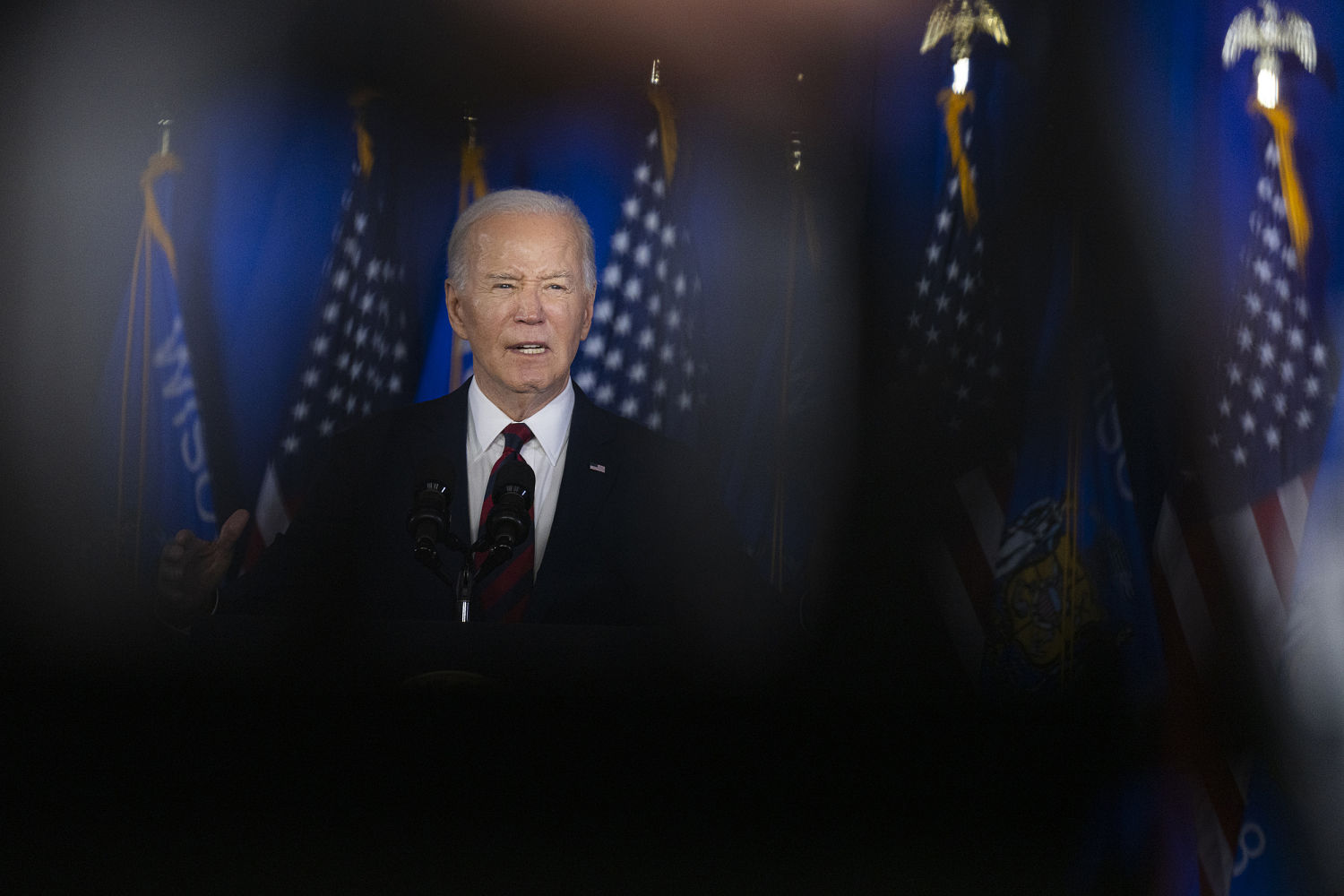Biden speaks with Netanyahu amid escalating tensions in U.S.-Israel, warns

WASHINGTON — During a critical phone call Monday, President Joe Biden warned Israeli Prime Minister Benjamin Netanyahu against Israel’s carrying out a planned military operation in Rafah, the White House said.
“Our position is that Hamas should not be allowed a safe haven in Rafah or anywhere else, but a major ground operation there would be a mistake,” national security adviser Jake Sullivan said at the White House briefing where he outlined the leaders’ conversation.
“It would lead to more innocent civilian deaths, worsen the already dire humanitarian crisis, deepen the anarchy in Gaza and further isolate Israel internationally,” Sullivan added.
He said more than a million people have taken refuge in Rafah, a city in the southwestern Gaza Strip along Egypt’s border, after having moved away from Gaza City and Khan Younis.
“They have nowhere else to go,” Sullivan said. “Israel has not presented us or the world with a plan for how or where they would safely move those civilians, let alone feed and house them and ensure access to basic things like sanitation.”
Sullivan noted that Rafah is a primary entry point for humanitarian assistance entering Gaza from Egypt and Israel, and he warned that “an invasion would shut that down or at least put it at great risk.”
During the call, Biden asked Netanyahu to send to Washington “a senior interagency team composed of military, intelligence and humanitarian officials” in the coming days to hear U.S. concerns about an invasion of Rafah, Sullivan said. He confirmed that Netanyahu agreed to the invitation.
Notably, Sullivan said U.S. officials now expect that Israel wouldn’t invade Rafah until that conversation takes place. The meeting will be an opportunity for the U.S. “to lay out an alternative approach that would target key Hamas elements in Rafah and secure the Egypt-Gaza border without a major ground invasion,” he added.
Sullivan rejected questions about whether an Israeli invasion of Rafah would be a “red line” for Biden, as the president had indicated in a recent interview on MSNBC.
Biden and Netanyahu, who last spoke to each other over a month ago, on Feb. 15, also discussed the prospects of a weekslong cease-fire agreement between Israel and Hamas that would involve the release of hostages who have been held in Gaza since the Oct. 7 attack.
“We would look to build on that cease-fire into something more enduring and use the space created by a cessation of hostilities to surge humanitarian assistance at a vital moment,” Sullivan said. “So far, this deal has been more elusive than we would have hoped.”
Sullivan said that while Israel has made “significant progress” battling Hamas in its military operations in Gaza, the effect on innocent Palestinians has been devastating. He said more civilians have died in this conflict than in all wars in Gaza combined.
“The president has repeatedly made the point that continuing military operations need to be connected to a clear strategic end game,” Sullivan said. “The president told the prime minister again today that we share the goal of defeating Hamas, but we just believe you need a coherent and sustainable strategy to make that happen.”
A White House readout of the call reiterated Sullivan’s description of the discussion.
The White House said that Biden had also “stressed the urgent need to significantly increase the flow of lifesaving aid reaching those in need throughout Gaza, with special emphasis on the north.”
The White House is considering how to respond if the Israeli government ignores the administration’s warnings not to launch a ground invasion in Rafah without a credible plan for Palestinian civilians. Last week, Netanyahu’s office said that he had approved plans for a ground offensive there and that the military was “preparing for the operational side and for the evacuation of the population.”
Monday’s call was the 20th between Biden and Netanyahu since Hamas’ brutal assault on Israel on Oct. 7. It also marks the longest gap between calls — 32 days. Previously, the longest the two had gone without speaking was 26 days, from Dec. 23 to Jan. 19.
Biden’s relationship with Netanyahu has been on shaky ground for months as he faces pressure from the progressive wing of the Democratic Party over U.S. support for Israel as tens of thousands of Palestinians have died in Gaza. Biden said in a recent interview with MSNBC’s Jonathan Capehart that an invasion of Rafah by the Israel Defense Forces would be a “red line” for him, though he said he would never leave Israel’s side.
“There’s no red line where I would cut off all weapons so they don’t have the Iron Dome to protect them. But there’s red lines where if he crosses them … he cannot have 30,000 more Palestinians dead,” he said,…
Read More: Biden speaks with Netanyahu amid escalating tensions in U.S.-Israel, warns

